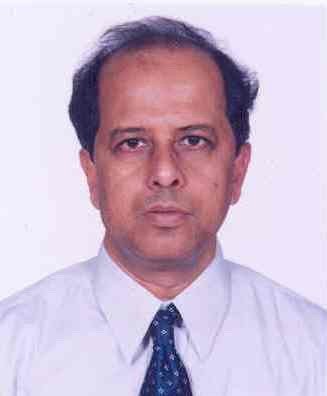'Collaborations to strengthen existing research areas'
May 13, 2014 | Tuesday | News | By BioSpectrum Bureau
'Collaborations to strengthen existing research areas'
Dr K Zaman, Senior Scientist and Epidemiologist, International Centre for Diarrhoeal Disease Research (icddr,b), Dhaka, Bangladesh
He recently visited Hyderabad, India, to deliver his presentation at the World Vaccine Summit 2014.
In his interview, Dr Zaman emphasizes that currently icddr,b is looking for collaborations which will strengthen its existing research areas.
He also shares about the exclusive in-house R&D activities happening within icddr,b.
Excerpts:
Q: Can you tell us about the R&D happening at icddr,b center?
Dr K Zaman: icddr,b is the International Centre for Diarrhoeal Disease Research, Bangladesh - an international health research institution located in Dhaka.
The institution addresses some of the most critical health concerns facing the world today, ranging from improving neonatal survival to HIV/AIDS.
In collaboration with academic and research institutions throughout the world, icddr,b conducts research, training and extension activities, as well as programme-based activities, to develop and share knowledge for global lifesaving solutions.
icddr,b translates knowledge from research into policy using strategic health programs. This allows basic research to rapidly influence policy applications and action, if the evidence supports meaningful public health benefit.
Research priorities at icddr,b is cross-cutting, such as child health, infectious diseases & vaccine sciences, reproductive health, nutrition, population, HIV/AIDS & safe water.
icddr,b has a mix of national and international staff, including public health scientists, laboratory scientists, clinicians, nutritionists, epidemiologists, demographers, social and behavioural scientists, IT professionals, and experts in emerging and re-emerging infectious diseases, and vaccine sciences.
The centre has a cross-cultural environment, with about 4500 staff, of which 95% local staff including researchers, medical officers, administrators, and health workers, and 5% international staff, primarily from academic and research institutions engaged in global health research.
Q: How are icddr,b's activities supported?
icddr,b's activities are supported by about 55 donor countries and organizations, including the Government of Bangladesh, UN specialized agencies, foundations, universities, research institutes and private sector organizations and companies that share the centre's concern for the health problems of developing countries and value its proven experience in helping solve those problems.
The centre is governed by a distinguished multinational board of trustees comprising 17 members from around the globe.
Q: Can you tell us about icddr,b's Strategic Plan 2020?
The following strategic objectives were identified as being key for achieving the mission of icddr,b:
- Contribute to the improvement in health of the Bangladesh's population through effective translation of knowledge and research at national level
- Achieve excellence in the priority areas of research
- Provide services that support the mission statement by leveraging research and the generation of knowledge
- Develop organizational capacity to achieve identified objectives
Q: What collaborations is icddr,b looking out for?
We are currently looking out for collaborations to strengthen our existing areas of research.









